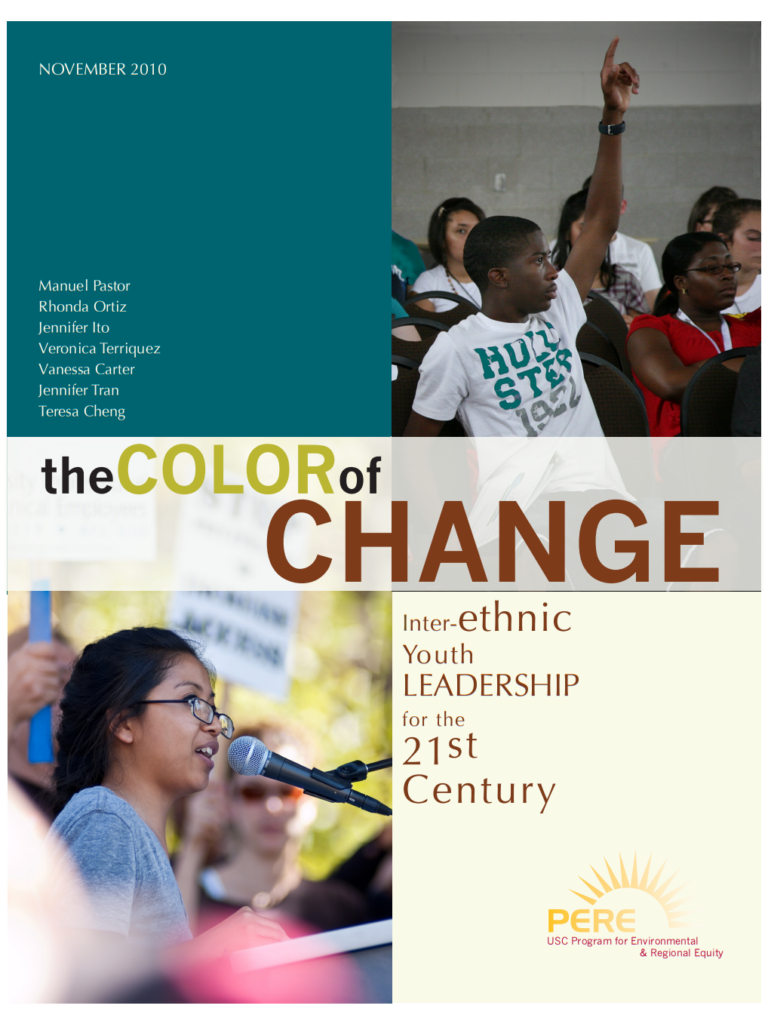
November 2010
By Manuel Pastor, Rhonda Ortiz, Jennifer Ito, Veronica Terriquez, Vanessa Carter, Jennifer Tran, and Teresa Cheng
Please note: reports dated earlier than June 2020 were published under our previous names: the USC Program for Environmental and Regional Equity (PERE) or the USC Center for the Study of Immigrant Integration (CSII).
While the nation will become “majority-minority” shortly after 2042, it will be much sooner—2023—when the majority of youth will be people of color. Unfortunately, racial gaps in economic and academic outcomes persist—and preparing a better future for all of America requires addressing this challenge.
The Color of Change: Interethnic Youth Leadership for the 21st Century suggests that one approach to securing that better future involves seeing youth as the progenitors of change and not simply the recipients of services. We argue that equipping young people with the tools to change—and hold accountable—the institutional structures that can facilitate or impede their success is critical. And we suggest that the rapidly changing dynamics of America’s metropolitan areas mean that young leaders will need special skills at working across the usual boundaries of race, geography, and generation.
The Color of Change is based on a review of the literature, a wide range of interviews with actors in the field, and feedback from a convening that brought together forty organizers, experts, and foundation staff. Applying a social movement lens to youth development, we lift up best practices, identify five gaps in the current field, and offer ten recommendations for the future, including: taking risks on new leadership, healing generational divides in movement organizations, focusing on community colleges as arenas for strategic intervention, developing a compelling frame and story for the field, and moving towards an integrated service delivery and civic engagement model.
For America’s next generation, the future is now. The civic engagement and leadership development of youth can help move the needle on our nation’s poverty and insecurity even as it helps those same young people shore up their own resilience and realize their potential to have healthy, productive lives. We hope this report contributes to productive and challenging conversations about the investments needed to support such a brighter and more equitable future.



